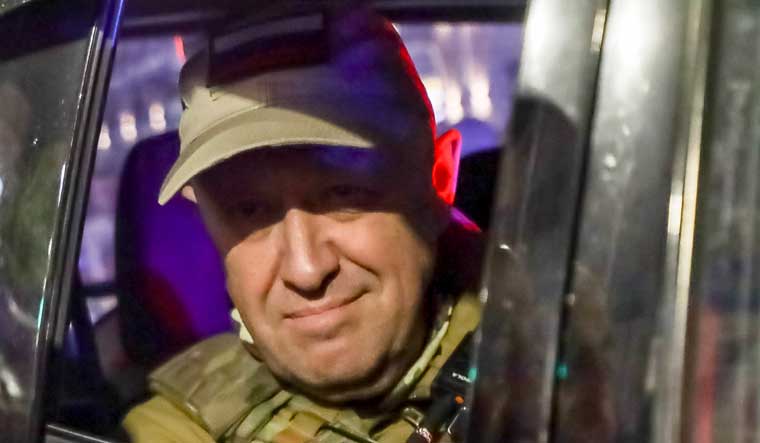Russian investigators on Sunday confirmed that Wagner chief Yevgeny Prigozhin and nine others, including top leaders of the mercenary group, died in a plane crash recently. The deceased were identified based on genetic examinations, Russian authorities said.
The Russian Investigative Committee spokeswoman Svetlana Petrenko said in a statement that forensic and genetic testing identified all 10 bodies recovered at the site of Wednesday's crash and the findings conform to the manifest of the plane. "As part of the investigation into the plane crash in the Tver Region, molecular genetic examinations have been completed. According to their results, the identities of all 10 victims have been established. They correspond to the list stated in the flight manifest," TASS reported quoting a statement from the committee.
However, the committee did not provide any details regarding what might have caused the crash.
Russia's civil aviation authority earlier this week said Prigozhin, 62, and some of his top lieutenants were on the list of the passengers and crew members on board the plane. An Embraer private jet travelling from Moscow to St. Petersburg crashed in the Tver Region on August 23. All 10 people that were onboard, seven passengers and three crew members, got killed in the accident.
Two months ago, Prigozhin mounted a daylong mutiny against Russia's military, leading his mercenaries from Ukraine toward Moscow. President Vladimir Putin decried the act as treason and vowed punishment for those involved.
Instead, the Kremlin quickly cut a deal with Prigozhin to end the armed revolt, saying he would be allowed to walk free without facing any charges and to resettle in Belarus.
US authorities had said that a surface-to-air missile that originated within Russia shot down the private jet with Prigozhin onboard. However, the Kremlin denied any role in Prigozhin's death and called all speculations “absolute lies”.
One of the Western officials who described the initial assessment said it determined that Prigozhin was very likely targeted and that an explosion would be in line with Putin's long history of trying to silence his critics.
Prigozhin's second-in-command, Dmitry Utkin, as well as Wagner logistics mastermind Valery Chekalov, also were killed in the crash. Utkin was long believed to have founded Wagner and baptized the group with his nom de guerre.
After the mutiny, the Kremlin said Prigozhin would be exiled in Belarus, and his fighters were offered three options: to follow him there, retire or enlist in Russia's regular army and return to Ukraine, where Wagner mercenaries had fought alongside Russian troops.
Several thousand Wagner mercenaries opted to move to Belarus, where a camp was erected for them southeast of the capital, Minsk.
(With PTI inputs.)


